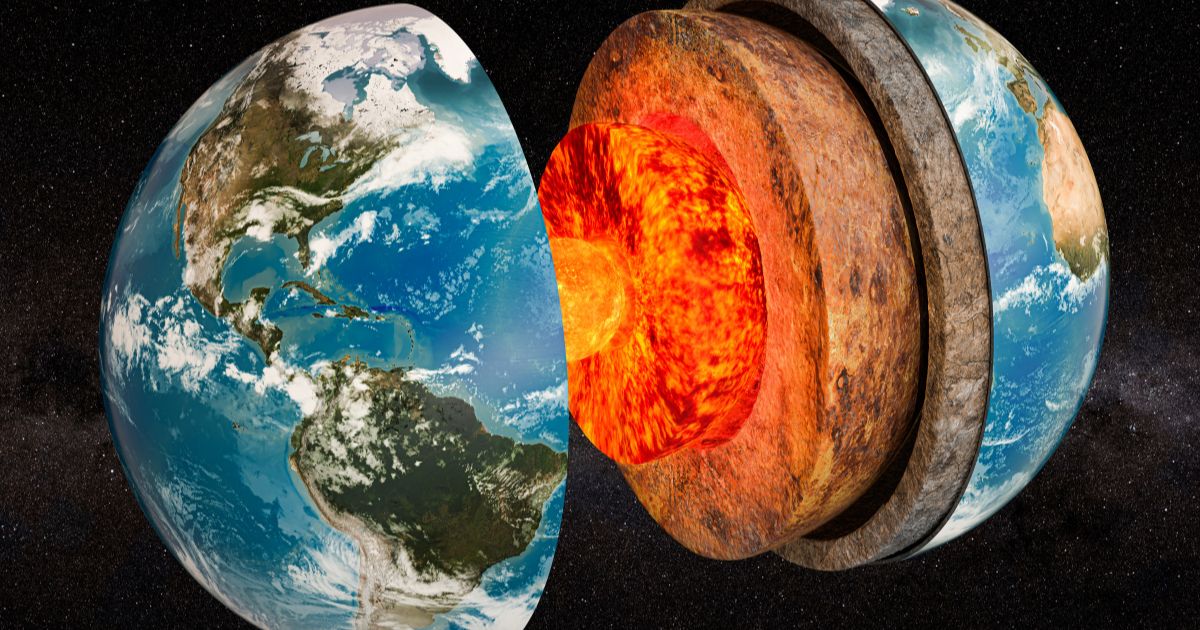General knowledge is more than just trivia—it’s the foundation of curiosity and lifelong learning. From the mysteries of ancient civilizations to breakthroughs in modern science and the creativity of world cultures, expanding your knowledge helps you connect ideas across disciplines and see the world in new ways. In this guide, we’ve gathered 12 fascinating facts that span history, science, literature, art, geography, and technology—each designed to spark your curiosity and enrich your understanding. Whether you’re preparing for a quiz competition, improving your critical thinking skills, or love learning fun and surprising facts, this ultimate general knowledge guide will keep you engaged and inspired.
In this comprehensive article, we’ll highlight timeless historical events, groundbreaking scientific discoveries, and cultural insights that reveal the beauty and complexity of our shared human experience.
1. The Earth’s Interior Is Mostly Iron
While we live on a planet of rock and water, the Earth’s core is primarily composed of iron and nickel. Scientists estimate that nearly 85% of the Earth’s mass is concentrated in the core, with temperatures rivaling those of the Sun’s surface. This iron core generates Earth’s magnetic field, which protects life from harmful solar radiation and helps migratory animals navigate thousands of miles with uncanny accuracy.

2. Honey Never Spoils
Archaeologists have found pots of honey in ancient Egyptian tombs that are over 3,000 years old—and still perfectly edible. Honey’s low water content, natural acidity, and the presence of hydrogen peroxide produced by enzymes make it inhospitable to bacteria and microorganisms. Store honey in a sealed container at room temperature, and it can last indefinitely.

3. Shakespeare Invented Over 1,700 Words
William Shakespeare is credited with coining or popularizing a staggering number of English words and phrases. Terms like “eyeball,” “pageantry,” and “bedazzled” first appeared in his plays and sonnets. His inventive use of language enriched English vocabulary and influenced countless writers who followed in his footsteps.

4. Bananas Are Berries, Strawberries Aren’t
In botanical terms, a berry is a fruit produced from a single ovary of a single flower with seeds embedded in the flesh. By this definition, bananas, grapes, and even watermelons are berries. Surprisingly, strawberries, raspberries, and blackberries are not true berries; they develop from a flower with multiple ovaries and are classified as aggregate fruits.
5. The Eiffel Tower Can Be 15 cm Taller in Summer
Metal expands when heated, and the Eiffel Tower is no exception. On hot summer days in Paris, the iron structure can grow up to 15 centimeters (6 inches) taller than its official height of 324 meters. When temperatures drop, it contracts back to its original dimensions.

6. There Are More Stars in the Universe Than Grains of Sand on Earth
Astronomers estimate that our observable universe contains around 1×1024 stars. Compare that to all the grains of sand in every desert and beach on Earth—around 7.5 × 10^18—and you’ll find that there are roughly 100,000 times more stars than sand grains. The cosmos truly dwarfs our planet in both scale and mystery.
7. Octopuses Have Three Hearts
Octopuses are marine marvels with an anatomy quite different from ours. They possess three hearts: two branchial hearts pump blood through the gills, while a larger systemic heart circulates it to the rest of the body. Their blue blood, rich in copper-based hemocyanin, is more efficient than hemoglobin at transporting oxygen in cold, low-oxygen environments.

8. The Human Nose Can Detect Over 1 Trillion Scents
Long thought to recognize around 10,000 odors, recent research shows the human olfactory system can distinguish at least one trillion different smells. Our noses contain hundreds of receptor types that combine in unique ways to identify an astonishing variety of aromas—from freshly baked bread to exotic spices on a remote spice market.
9. The Shortest War in History Lasted 38 Minutes
In 1896, the Anglo-Zanzibar War between the British Empire and the Sultanate of Zanzibar became the shortest recorded war. After the sultan refused British demands, the Royal Navy bombarded his palace, leading to surrender just 38 minutes after hostilities began. The conflict remains a remarkable footnote in military history.
10. Koalas Have Human-Like Fingerprints</h2>
Despite being marsupials, koalas evolved fingerprints so similar to humans that even experts have trouble distinguishing them under a microscope. Their ridged patterns help them grip eucalyptus branches as they feed, illustrating how similar environmental pressures can shape unrelated species in parallel ways.
11. You Can Start a Fire with Ice
In survival situations where matches and lighters are unavailable, clear ice can serve as an improvised lens. By carving a piece of ice into a convex shape and using it to focus sunlight onto tinder, you can generate enough heat to ignite dry leaves or paper. The technique requires patience and skill but demonstrates remarkable resourcefulness.
12. Cleopatra Lived Closer to the Moon Landing Than the Great Pyramid
Cleopatra VII ruled Egypt from 51 to 30 B.C., approximately 2,000 years before Neil Armstrong walked on the Moon in 1969. In contrast, the Great Pyramid of Giza was completed around 2560 B.C., about 4,500 years before the Apollo 11 mission. This surprising timeline puts ancient Egyptian history in a new perspective.
Conclusion
From the depths of the Earth’s iron core to the vast reaches of outer space, general knowledge encompasses a breathtaking variety of facts that enrich our understanding of the world. Whether you’re preparing for a quiz night or simply satisfying your curiosity, these 12 fascinating facts are just the beginning. Keep exploring, keep questioning, and you’ll find that the universe has even more wonders waiting to be discovered.
Learn More: 11 Must-Know General Knowledge Facts to Boost Brainpowe







